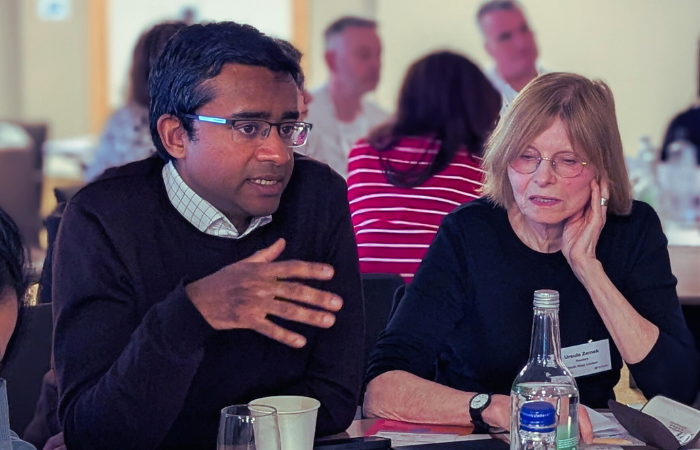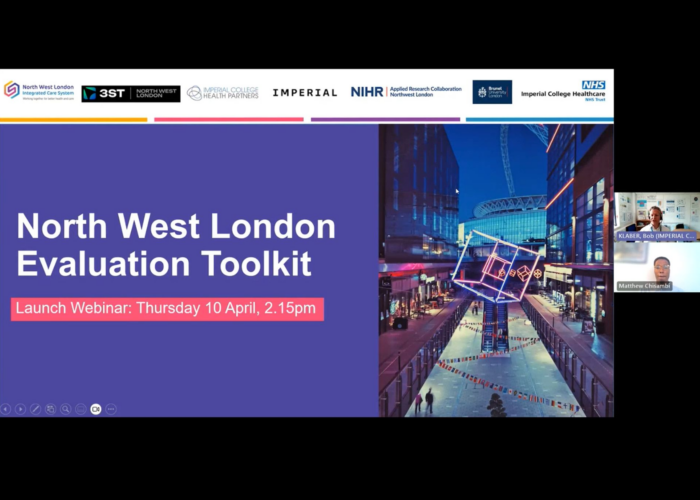Accountable care is said to be an important aspect of the future NHS, but where do you start? In September ICHP launched the accountable care learning lab, in collaboration with UCLPartners, with the hope of answering such questions. Dr Katja Behrendt, ICHPs Innovation Manager, provides insights from the day, with a handy explanation of accountable care acronyms.

The Accountable Care Learning Lab began with getting a flavour at both a national and local perspective on accountable care. Presenters covered the various acronyms currently in use, had a discussion on the recently published accountable care contractual model and considered the potential changes that may arise in commissioning as a result. Moving to a local perspective, City & Hackney CCG explained that change at a system level is possible without contractual reform.
Accountable care and three letter acronyms…
Ali Sparke (Head of Contracting and Business Environment, NHS England) outlined differences between accountable care systems and organisations:
- An accountable care system (ACS) is a system in which commissioners and providers (and ideally also local authority) take clear collective responsibility for the health of a population and the resources available to provide joined up, better coordinated care.
- Accountable care organisations (ACO) are a further consolidated form of an ACS: a provider organisation that is contractually accountable for a defined population and a single, combined budget to provide an integrated set of services across organisational boundaries. This typically involves longer contract lengths, outcomes based contracting, the provider organisation taking on activities traditionally carried out by commissioners, and a single budget.
Changes ahead for commissioners
Johannes Wolff, Head of the Commissioning Policy Unit at NHS England, gave us an insight into the possible implications for commissioning, including the possible evolution of the commissioner-provider relationship. It seems clear that statutory commissioning functions will remain unchanged, however it is possible that activities undertaken in the discharge of these functions could be moved to the provider level in such systems of care. Operational management such as service development and delivery for the local area may be one aspect that moves across to the provider side. The discussion that followed noted the need to factor in capacity and capability as these are specific skills that need to be developed and strengthened. There was also mention that these changes potentially herald the end of the purchaser-provider split introduced not so many years ago.
What can you actually do without changes in contracting?
Anna Garner, Head of Performance and Alignment from City & Hackney CCG, gave an update on their work including how this has been influenced by the devolution agenda between the clinical commissioners and local government. What’s clear in Hackney is that the relationships between commissioners and providers have been developed and nurtured over years, which has helped to shape their work. More recently, their service redesign work has progressed without the need for contractual reform at a provider level. The devolution agenda also allows City & Hackney to define their population not only in terms of who is registered with a GP, but also who is registered with the local council.
Both presentations contrasted very well in giving the audience two sides of the story; the governance and contracting aspect on one side, with the workforce and organisational development perspective on the other
Next steps… there is still much to do
One area of challenge in most geographies is around creating an integrated dataset across providers, noted by our presenters as an area they hadn’t yet solved. Amongst other topics, we hope to dedicate some of our forthcoming sessions to understanding the human element in implementing accountable care, covering workforce development and organisational change. Although much work is to be done, it was an informative afternoon that gave much food for thought. We are looking forward to the next learning lab, this time with action learning sets and more time for discussion among participants.
More information on the Learning Lab.



